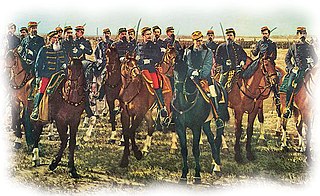
Juan Bautista Alberdi was an Argentine political theorist and diplomat. Although he lived most of his life in exile in Montevideo, Uruguay and in Chile, he influenced the content of the Constitution of Argentina of 1853.
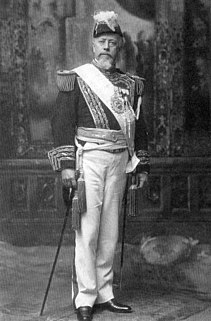
Alejo Julio Argentino Roca Paz was an army general who served as 8th President of Argentina from 12 October 1880 to 12 October 1886 and 13th from 12 October 1898 to 12 October 1904. Roca is the most important representatives of the Generation of '80 and is known for directing the "Conquest of the Desert", a series of military campaigns against the indigenous peoples of Patagonia. During his two terms as president, many important changes occurred, particularly major infrastructure projects of railroads and port facilities; increased foreign investment, particularly from Great Britain; large-scale immigration from southern Europe; expansion of the agricultural and pastoral sectors of the economy; and laicizing legislation strengthening state power. Roca's main foreign policy concern was to set the limits with Chile, which had never been determined with precision. Roca took advantage of the fact that year of 1881, Chile was fighting the War of the Pacific against Bolivia and Peru, so for Chile it was strategically important not to have a second military front. Argentina gained territory by treaty with Chile.
Federalization, in Argentine law, is the process of assigning federal status to a territory with the purpose of making that territory the national capital.

Carlos Casares was an Argentine rancher, executive, and politician.
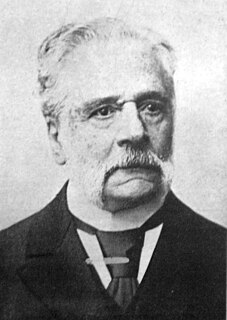
Bernardo de Irigoyen was an Argentine lawyer, diplomat and politician.
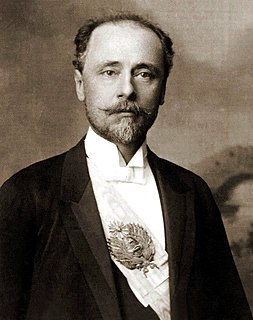
Miguel Angel Juárez Celman was President of Argentina from 12 October 1886 to 6 August 1890. A lawyer and politician, his career was defined by the influence of his kinsman, Julio Argentino Roca, who propelled him into a legislative career. He was a staunch promoter of separation of church and state and an aristocratic liberal.

The Argentine general election of 1928 was held on 1 April, with a turnout of 80.9%.
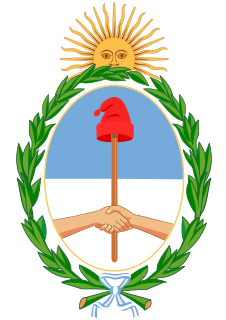
Argentina held nine presidential elections between 1862 and 1910, every six years.

The Argentine Civil Wars were a series of civil wars that took place in Argentina from 1814 to 1880. These conflicts were separate from the Argentine War of Independence (1810–1820), though they first arose during this period.
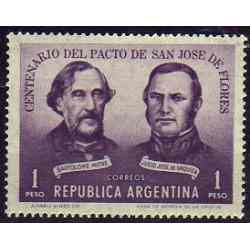
The Pact of San José de Flores was a treaty signed between the Argentine Confederation and the State of Buenos Aires on November 11, 1859, on the aftermath of the Battle of Cepeda. It established guidelines for the entry of the latter into the Confederation, and Buenos Aires' acceptance of the Argentine Constitution of 1853.
Events in the year 1880 in Argentina.

The Argentine presidential election of 1862 was held on 4 September to choose the first president of Argentina. Bartolomé Mitre was elected president.
The Argentine presidential election of 1868 was held on 12 April to choose the president of Argentina. Domingo Sarmiento was elected.
The Argentine presidential election of 1874 was held on 12 April to choose the president of Argentina. Nicolás Avellaneda was elected president.
The Argentine presidential election of 1886 was held on 11 April to choose the president of Argentina. Miguel Juárez Celman was elected president.
The Argentine presidential election of 1904 was held on 12 June to choose the president of Argentina. Manuel Quintana was elected president.
The Argentine presidential election of 1910 was held on 13 March to choose the president of Argentina. Roque Sáenz Peña was elected president.
The Argentine presidential election of 1898 was held on 10 April to choose the president of Argentina. Julio Argentino Roca was elected president for a second period.



